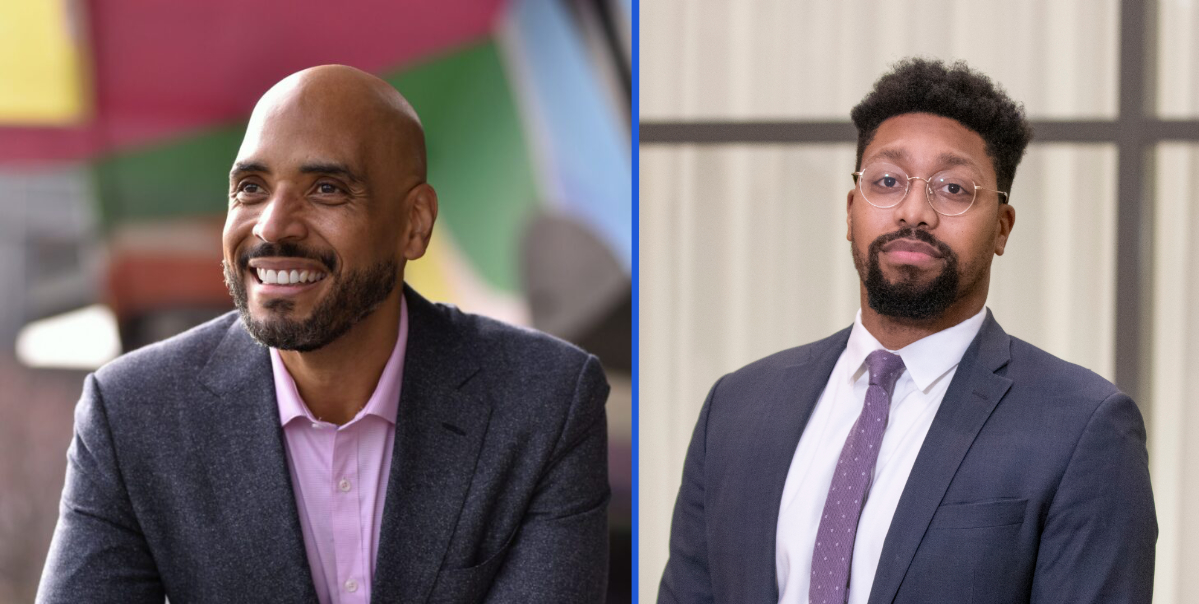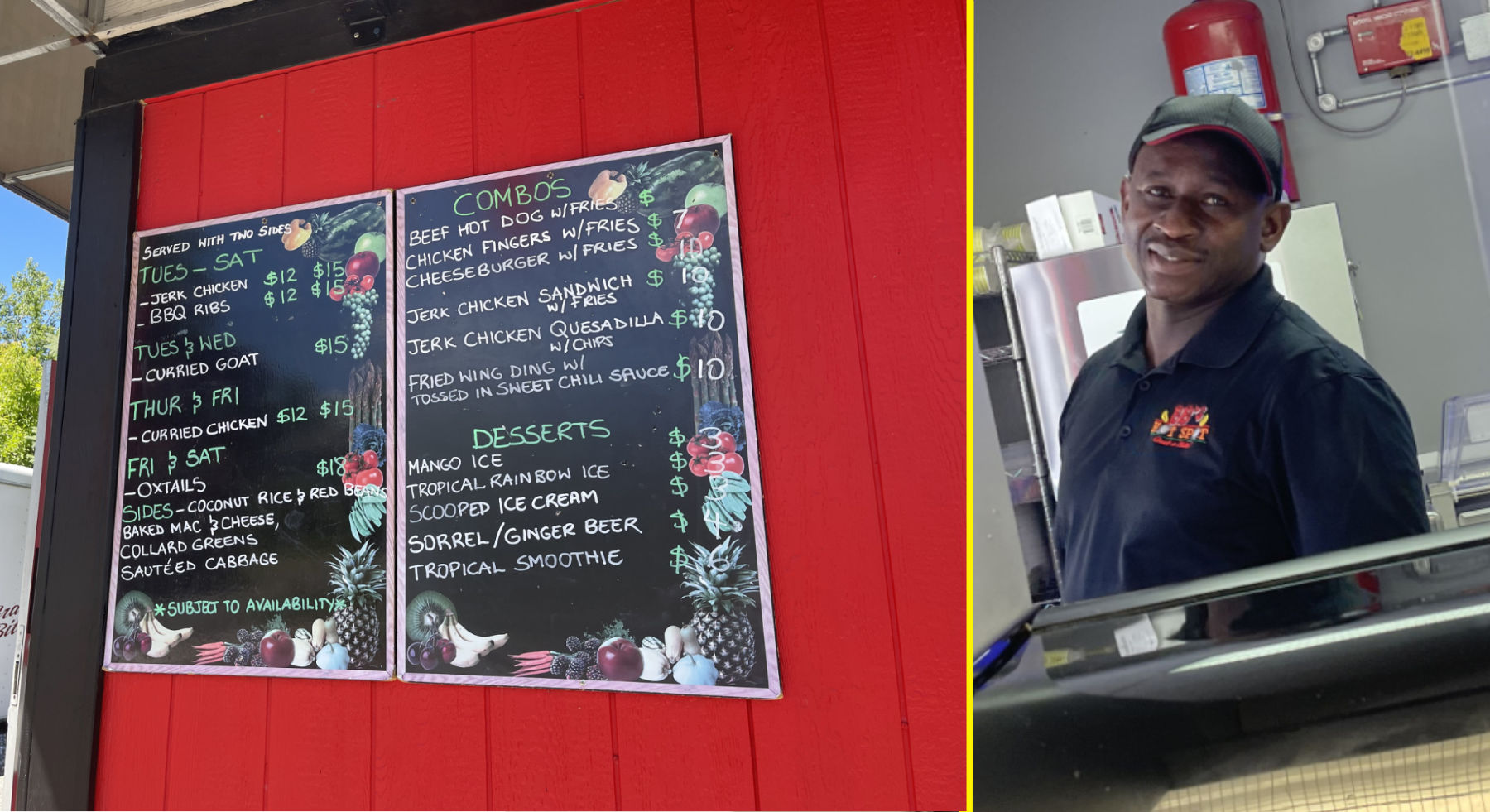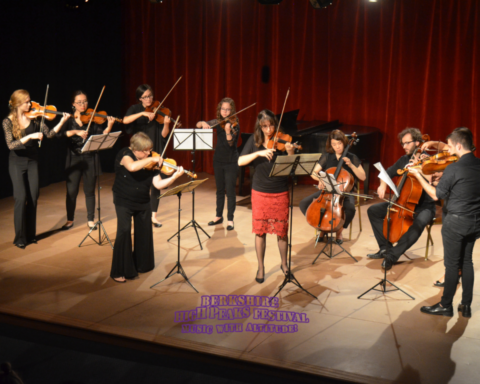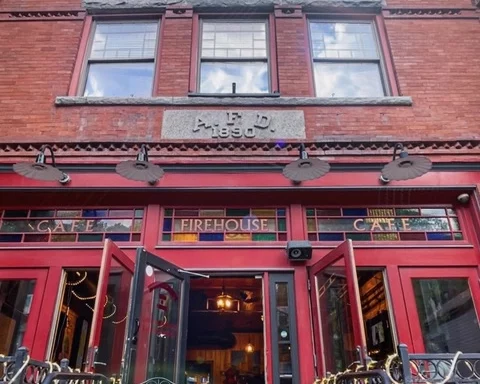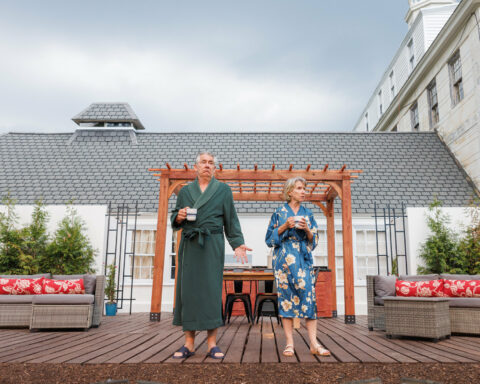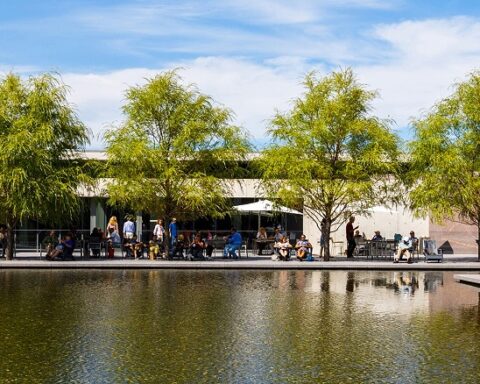Above: (Left) Executive Director of the Massachusetts Cultural Council, Michael J. Bobbitt; photo by Craig Bailey; (Right) Che Anderson, newly appointed to the MCC by Governor Charlie Baker; submitted photo.
Correction: An earlier version of this story incorrectly identified Che Anderson as director of POW! WOW! Worcester, a position he held in 2016 – 2017.
Last month, Massachusetts Governor Charlie Baker appointed Worcester resident Che Anderson to serve on the board of the Mass Cultural Council (MCC). In a press release, Chair of the MCC, Nina Fialkow, stated her excitement about adding Anderson to the diverse board of directors.
“We are so pleased to welcome Che to the Council. His passion for public art, building community, and public service will bring valuable input and expertise to the Council’s deliberations, said Fialkow.”
Anderson grew up in Manhattan, N.Y. as a child with a growing interest in the art field, especially street art.
Anderson serves as the Assistant Vice Chancellor for City and Community Relations at the University of Massachusetts Medical School.
Before starting his work at UMass Medical School, Anderson served as the Deputy Cultural Development Officer for the City of Worcester where he focused on public art, special events, and cultural equity.
Previously, Anderson was also a co-director of POW! WOW! Worcester, an annual festival that hosts internationally acclaimed muralists, illustrators, and installation artists in Western Massachusetts to fill underused spaces, promote diversity and encourage dialogue within the city of Worcester.
According to the MCC, Anderson will work closely with Executive Director Michael J. Bobbitt. The Council is developing its first “Race Equity Plan,” with the aim of diversifying the membership of MCC, so that decision-makers represent all who live, work, and participate in the state’s cultural sector.
Bobbitt spoke with The Greylock Glass about the Race Equity Plan, why Anderson was the perfect fit for the MCC, and his future plans to continue to combat racism.
Bobbitt was born and raised in Washington DC, and recognized his passion for the arts from the time he was a young child.
“I really fell in love with the arts from the time I was a young kid,” Bobbit said, “everything from dance to trumpet to singing to acting to art, and that propelled me into a career as a performer for many years. And then I shifted over to arts management.”
Bobbitt spent the majority of his career running theaters, and was running a theater in DC up until 2019.
He relocated to Watertown, Mass. to run The New Repertory Theater until taking his current position as the Executive Director of the MCC.
“One of the reasons I took the job at the New Repertory Theater,” Bobbitt recalled, “was, in their strategic plan, they outlined their desire to be equitable, and promoted diversity equity and inclusion. That’s been something I have worked on in my career for the last 8 years. I know the impact that can have on a community and how it can truly change audiences to scale up organizations, by gaining revenue and getting people in the door.”
Anderson and Bobbitt both have a background in the arts but through different mediums. Anderson will combine the arts with the community engagement the MCC continuously strives to bring.
“Che came as a recommendation to our appointing office,” Bobbitt explained. “Then I looked into Che’s work, as he has served as the Vice Chancellor for the City of Community relations, and his deep connection with the city of Worcester, and his programable abilities with the POW! WOW! Festival. As a person of color, we are trying to diversify every aspect of the organization, especially the council, and I feel like Che would have a lot to bring and a lot to offer.”
Asked how he feels about the opportunity to be chosen to work in this capacity, and how he feels he could bring his voice to the MCC, Anderson answered by e-mail.
“It is my belief,” Anderson said, “that greater racial equity can, and will, push our communities towards a better union. This work must be embraced by all sectors, including the arts, and must be supported with words, actions, and financial resources to ensure the breadth and diversity of the Commonwealth that are able to actively engage in building a better world.”
Anderson has been appointed to the grant committee, in the middle of the MCC building their Race Equity Plan, which will be unveiled this summer.
“The Race Equity Plan,” said Bobbitt, “really has us looking into old granting process to eligibility and how we train panelists and review them, even to the final reports really looking it over through a racial equity lens. I think Che on this committee with all of his backgrounds will support the efforts.”
Anderson laid out his perspective on working with racial equity issues, as well as what he feels he would bring to help combat racism in the greater Massachusetts communities.
“What most excites me,” Anderson said, “is the opportunity to engage with communities across the Commonwealth to expand access in the cultural sector, while amplifying the cultural hub that is Worcester. I believe that arts and culture are a social determinant of health and hope to utilize my experience in the public sector, my ingenuity, and sense of humor to elevate the Council’s work and goals even further.”
Both the council and staff of the MCC have been doing more training in regards to racial equity, to aid in the proper knowledge regarding new principles regarding the Race Equity Plan, and how they will be acted upon in the coming months.
“As an Executive Director,” said Bobbitt, “my work includes helping organizations diversify and build racial equity plans for many years, we will look to get feedback from the community and launch it. One of the things we are identifying in our Racial Equity Plan is the emphasis on recruitment, especially on those from marginalized communities.
“I think we are going to find out,” he continued, “that we have been underfunding those organizations, and that there are many more organizations that don’t know we exist, said Bobbitt.”
Bobbitt envisions how his work with intersect with that of Anderson and the effects of the Racial Equity Plan in five years.
“I hope to see that we are investing more in BIPOC communities,” said Bobbitt, “in terms of organization and individuals. I also hope that it will give us a chance to look at our granting process, by making sure that organizations that don’t have large fundraising departments can get funding from the state.
“We are making sure,” he went on, “that internally we have voices from BIPOC people on all decisions making to ensure that we have equal representation of the staff, the panel, and working groups and task forces. The more you work to take care of people who need it the most, the more everyone benefits.”
Bobbitt truly believes in the science which points to the psychological ways that art can help young children do better in school, and how art helps to encourage community engagement.
Bobbitt allowed himself to broaden the scope of his vision for a moment, gazing into a possible future, “The benefits of the exposure to art are endless,” he stated,” as artists are experts at using their imagination to see the world differently. So, we can imagine what the world looks like without racism, without COVID and imagining what the world would look like with a really strong democracy to back up our workforce, so that we can make the state diverse and the best in every aspect.”
